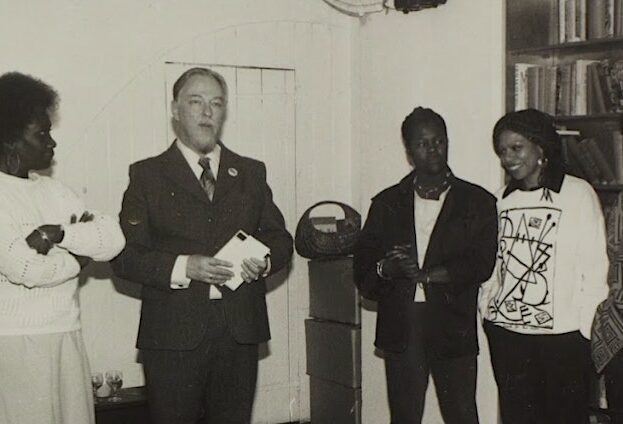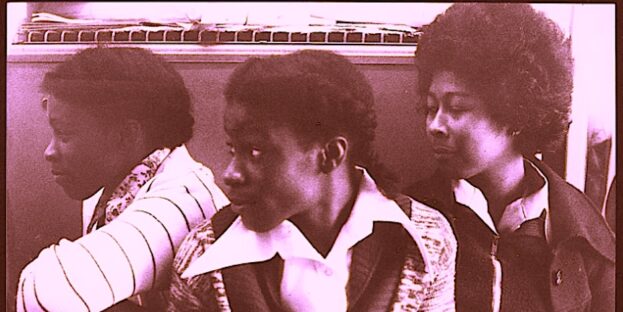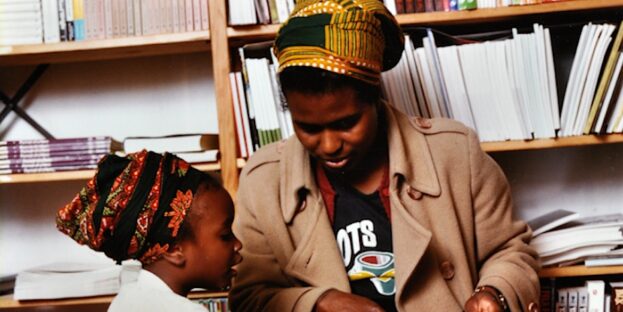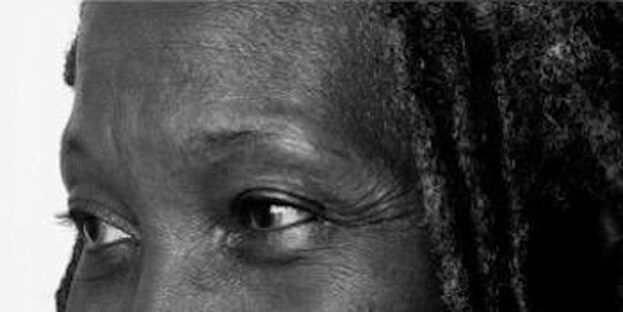
Making use of archive evidence and stories from participants, our central theme for this year’s conference focuses on the critical influence and contributions of Black Power Women and their roles in Black Education Movements.
By way of example, Jessica Huntley’s pioneering community leadership and educational legacy is a constant and important catalyst to draw on the many stories of fighting injustice, international solidarity and purpose to share in the lessons and experiences from leading feminist education activists.
Jessica Huntley’s gaze reveals her passion for young people’s education. She believed in helping young people to learn about themselves and their heritage by advocating for an education in Black history. Among the many activities that she got involved in included her galvanising of the Black community in countering the rise of the draconian, systemically racist and unfair practices that saw African Caribbean heritage pupils classified as educationally sub-normal, excluded from local schools and ‘bussed’ out of their neighbourhoods.

Through lobbying the Caribbean Education and Community Workers Association, Jessica was an instrumental force in fighting against the unfounded stigma of ‘sub-normal’. She supported the proposal for research to discredit those racist theories.
This direct activism and her encouragement of Bernard Coard led to his seminal book, How the West Indian Child Is Made Educationally Sub-normal in the British School System, which was eventually published by New Beacon Books (1971).
With key notes from Stella Dazie, Prof. Suzanne Scafe and Beverley Bryan, leading members of the Organisation of Women of African and Asian Descent (OWAAD) – the first activist organisation that led to black women’s groups being formed nationwide – that gave a voice to the importance of the many strands of a wider education that served communities to have agency in, over and beyond the institutional settings.
The programme is subject to change 
MORNING
- 10:00 Doors open/arrvials
- 10:15 Archive Tour (1 of 3)
10:50 Welcome & Introductions
11:00 Discovering Black Women in Black Education Movements: Building an intergenerational with Archive partnership project: Black History Portal Pilot
Panellists and Speakers: Sarah Goddard-George Padmore Institute, Harlynn Homan-Black Cultural Archives, Dr Hannah Ishmael- Kings College, London, Beverley Mason-Huntley Archives, Rachael Minott-The National Archives.
Black Power Women Black History Portal stories: Research highlights from Angelina Osborne, and Molly Richards
- 12:00 to 13:00 – “Ideas, Interventions and Interactions”
We invite attendees to get involved with live feedback across two archive projects: - 12:00 – Live pilot: Black History Portal research project UX + and responses (all day)
- 12:00 – Learning Around the Curriculum: Huntley Archive Loan Boxes (all day)
Lessons from the Huntley Archives: Themes and Stories for Schools and Community Learning
with Francesca Aisle and Ilhan Awed, The Black Curriculum
13:00 Break
Lunch and Free movement time/ Explore Book stalls/networking/View archive films on screen and two further archive tours
AFTERNOON
14:30 Black Power Women in Education – Race & Resistance: Yesterday’s Reflections and Today’s Responses
Panellists Roundtable Contributors: Dr Gloria Botchway, Beverley Bryan, Stella Dadzie, Pauline Rutter, Professor Suzanne Scafe, Lavinya Stennett 
- 16:00 Black Education & Archives: A Call to Action
- 16:15 Gone too Soon: Tributes, by Mia Morris, OBE
- 16:30 “Cultural Close” including Pauline Rutter
- 17:00 Conference ends
Acknowledgments
We are thankful for the ongoing and generous support we receive from the City of London/LMA and our project partners at The National Archives, Black Cultural Archives, George Padmore Institute, Kings College London and The Black Curriculum.
We could not stage the conference without the in-kind support, the skills and help from the amazing team of FHALMA volunteers and the generosity of our speakers and contributors. Huge Appreciation and thanks.
